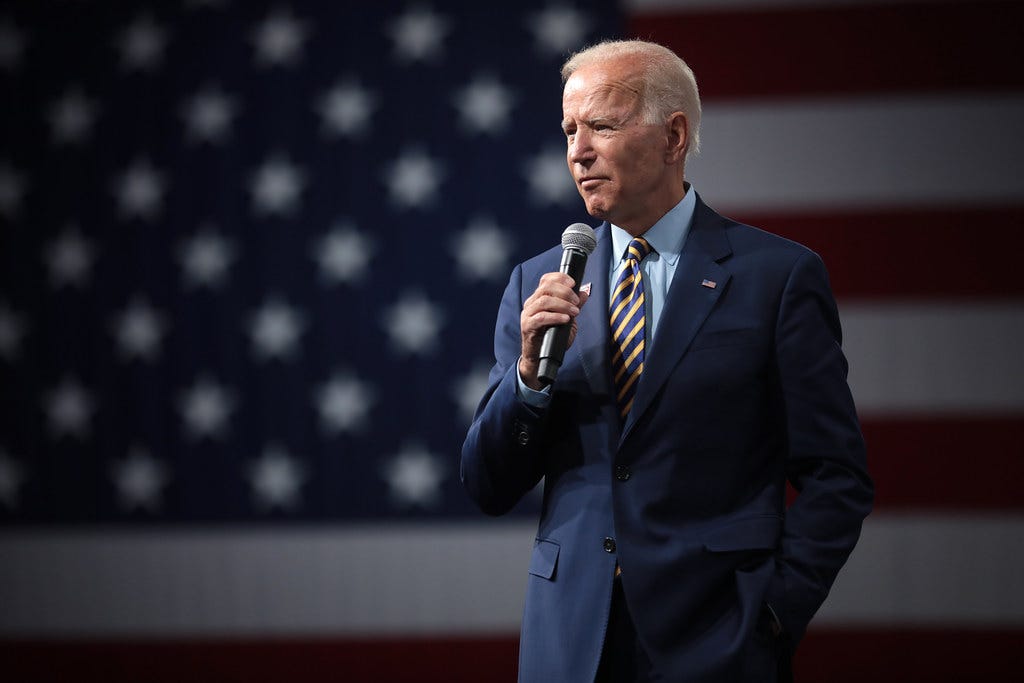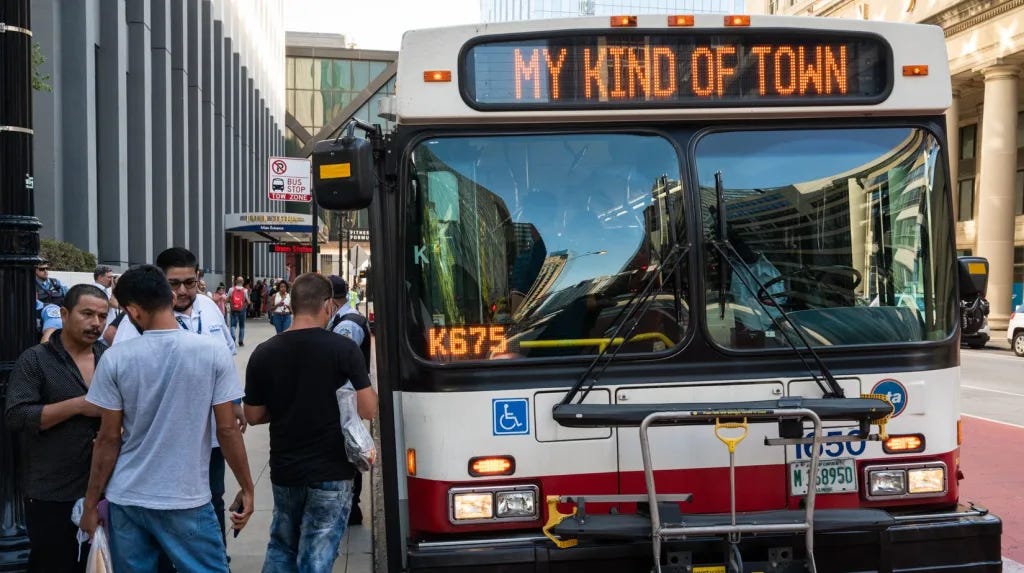Critical education funding to sunset if state legislature fails to act
The Invest In Kids Act will expire this year unless state legislators renew the tax credit. This beacon of hope should continue shining.
Let’s start with some scripture: “The King will reply, 'Truly I tell you, whatever you did for one of the least of these brothers and sisters of mine, you did for me.’” – Matthew 25:40
Next week, the state legislature will convene for the second week of veto session. And before them will be an opportunity – not merely one of policy, but of potential, a chance to make a way for thousands of young children through the often troubled world of K-12 education. It is the opportunity to create a path of light and love and flourishing for young people who do not see that kind of hope often enough. The Invest in Kids Act (IIKA), a beacon of hope for many, faces a critical juncture. This program, unless extended by our legislators, will sunset in 2023. Its continuation is not just a matter of public interest but of moral imperative.
Since its inception, the IIKA Tax Credit Scholarship Program has been more than statistics – it is the story of more than 40,000 scholarships, of 9,500 dreams being nurtured in the 2022-2023 school year, and of more than 26,000 hopeful children on a waiting list. Behind each number is a child, a future leader, artist, scientist, or perhaps a pastor, each endowed with God-given potential, awaiting an opportunity to flourish.
Some members of the Black Caucus originally opposed the continuation of the program citing that it did not do enough for Black children. The new bill included the proposed creation of a “Region 7” – a visionary move that will target resources directly for underrepresented communities, particularly benefiting Black children in underserved areas. This change is more than a policy tweak; it is a commitment to “the least of these,” offering a fresh stream of resources to quench the educational thirst of thousands. The proposed enhancement of scholarship availability in these regions is not just an act of funding; it’s an act of faith – faith in the unseen potential of these young minds and hearts.
But why should this matter to people of faith? Why should the body of Christ in Chicago and across the state concern itself with legislative changes and fiscal allocations? The answer rises from the very core of the mission of the church – to love, to serve, and to be a witness for the compassion of Christ, especially for the last and the least. Proverbs 31:8-9 exhorts us to “speak up for those who cannot speak for themselves, for the rights of all who are destitute.” Supporting the IIKA is a tangible manifestation of this biblical command.
The amendments to the IIKA, including a significant increase in scholarships for children in underserved areas and the engagement of more small-dollar donors, reflect a strategic approach to inclusivity and stewardship. The reduction of the overall program credit cap and individual giving cap, paired with a federal tax deduction on non-credit receiving portions of gifts, balance fiscal responsibility with generous giving. This restructuring aligns with the Christian values of prudence, justice, and charity.
Our voices, united in advocacy for this act, signal a commitment to a future where each child’s education is not dictated by their zip code or socioeconomic status but enriched by their God-given talents and passions. We are called not just to hope for a better future but actively to work toward it. James 2:17 reminds us that "faith by itself, if it is not accompanied by action, is dead."
As pastors and believers, we are positioned uniquely as both shepherds and advocates. We understand that true education is not merely about academic achievement but about forming the whole person – a mission deeply resonant with the objectives of the IIKA. Our advocacy for this program reflects our commitment to holistic development, nurturing not only minds but hearts and spirits, preparing a generation to lead with wisdom, empathy, and integrity.
Let this then be our call to action. Reach out to your legislators, engage with your congregations, and advocate in your communities. Educate them about the IIKA, about the lives touched and the futures brightened. This isn't just about numbers and policies; it's about God's children, each an embodiment of divine possibility.
“Let us not become weary in doing good, for at the proper time we will reap a harvest if we do not give up.” There is only one week remaining in session. This is not the time to get tired. This is time to do good work. Over the next week, I am urging us to stand together, to raise our voices, to marshall our resources, and to devote our prayers toward getting the extension and enhancement of the Invest in Kids Act across the finish line. Through our collective efforts, we can pave the way for a brighter, more equitable future for the children in our city and state, and in doing so, honor the God we serve.
With hope and determination in Christ,
Pastor Chris Butler
Do you have ideas for future Civic Update stories or want to contribute a story yourself? Email our editor by clicking the button below!
The Round Up
Here are the stories that caught our eyes this week and what they mean for the weeks ahead.
President Biden to visit Illinois next week
President Joe Biden plans to visit Illinois next week.
The president’s itinerary isn’t publicly finalized, but he’s expected to hold public events touting his agenda and will likely have a fundraiser on Thursday, Nov. 9.
The Chicago Sun-Times reports members of the Illinois congressional delegation have been told that the president will be in the Chicago area that day.
Chicago releases its first city racial equity report
The city of Chicago has released its first-ever racial equity report, part of an effort to improve government programs for all Chicago residents — from arts and culture to streets and sanitation.
The report puts race at the center of decisions on how government works, providing a foundation upon which to build a range of policies aiming to provide services to more people.
Twenty-five city departments crafted racial equity plans with the office of Candace Moore, the city’s first chief equity officer, providing guidance.
Mayor Johnson in Washington D.C. over migrant crisis
Chicago Mayor Brandon Johnson has joined other mayors in Washington D.C. Thursday to ask the federal government for aid to handle the migrant crisis.
The meeting in D.C. came a day after city council members were divided on purchasing land for a new shelter.
Johnson joined mayors from New York, Denver, Houston and Los Angeles to ask for financial help dealing with housing for migrants.
Newsclips
Woodlawn neighbors could lose community garden as apartment developer takes over space
Mayor Johnson sets sights on enshrining right to counsel for Chicago tenants in eviction court
Chicago Park District exec Maya Solis quits amid allegations of sex harassment cover-up
Gov. Pritzker expands utility assistance for low-income homes
Education
Chicago charter schools face potential crossroads with new mayor, dozens of renewals
Chicago Public Schools touts 'historic' graduation rate
Illinois legislators make a new school board map proposal
Former student awarded $150K after CPS forced participation in Hindu rituals
Migrant crisis
Migrants sleep outside in frigid temps as City Council squabbles about what to do next
Civic Federation urges City Council to devise contingency plan for migrant funding
West Town migrant shelter opening pushed back as unions protest construction work
Mayor Brandon Johnson's plan to turn old Jewel-Osco into Migrant shelter stalls
Surging demand for city ID cards strains Chicago clerk's office
Chicago City Council meeting to discuss sanctuary city referendum








Informative, as always! BTW, what's up with the new L.A. Chapter? I've been waiting to hear from them again.